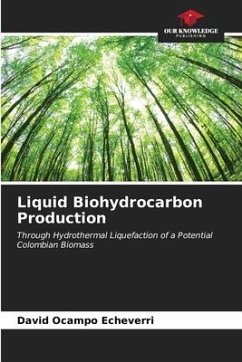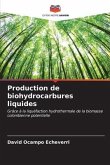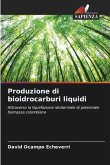Theoretically, biomass has the capacity to provide 100% of the world's energy requirements; however, the production, exploitation and use of this energy source is still not sustainable. Currently, biofuels are of great importance both nationally and globally, supported by the search for viable alternatives that aim to replace, to some extent, diesel fuel and gasoline from petroleum. In order to contribute to the search for alternatives to the global problem, thermochemical processes for the transformation of biomass are presented as promising technologies for obtaining liquid fuels with properties similar to fossil fuels. Among these technologies is the hydrothermal liquefaction of biomass. This research work seeks to technically develop a liquid biohydrocarbon with energy potential from a biomass available in Colombia by means of hydrothermal liquefaction.
Bitte wählen Sie Ihr Anliegen aus.
Rechnungen
Retourenschein anfordern
Bestellstatus
Storno








